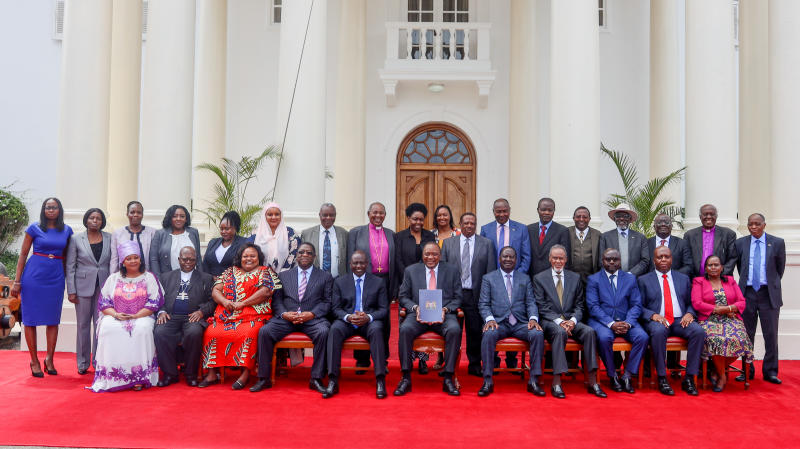×
The Standard e-Paper
Join Thousands Daily

President Uhuru Kenyatta with Deputy President William Ruto, former Prime Minister Raila Odinga and the Building Bridges Initiative taskforce members when they delivered the taskforce's report at State House, Nairobi. [File, Standard]
A decision by President Uhuru Kenyatta and opposition leader Raila Odinga to extend the term of the Building Bridges Initiative task force has sparked controversy. Some leaders said they expected a new team and others questioned the move.